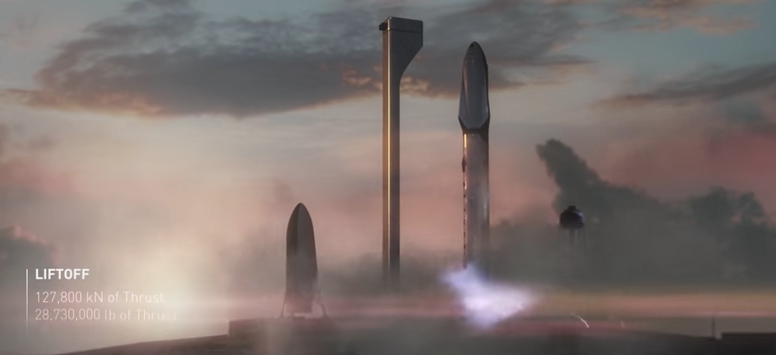We’ve been waiting for this. Elon Musk, speaking at the International Astronautical Congress last night, has outlined his plans for getting humans off this rock — using a rocket — and onto other planets. He’s already renamed the Mars Colonial Transporter as the Interplanetary Transport System, since it will be able to travel further than Mars. Now… here’s how Musk plans to send humans to Mars and beyond.
It’s no surprise that the Interplanetary Transport System is the major component here. Around 200 people (though the first mission may only have as many as 100 travellers — even that’s an impressive number) and about 450 tons of cargo will be shipped on the ITS’ spaceship. The first trips might take as long as 150 days but around 80 days is Musk’s target. Actually, the target is 30 days per trip, with 200 passengers along for the ride, but that’s for some time in the future when we have better rockets. We’re not there yet.
You can see a short animated presentation below of how we’d get a rocket ready for a colonisation mission. Using SpaceX’s yet-to-be-build BFR (the rocket) and the BFS (the ship), the ship component would be launched into orbit, refuelled in space and then sent at our solar system’s red rock of doom. Seriously, the first lot of people to travel that way will possibly die there. But they’ll take advantage of a (for humans) very advanced space travel system before that happens. And there will be fun, games, and a restaurant in the ship for the trip over. So there’s that.
The ship will be designed with return trips in mind too. It’s likely that SpaceX will attempt to establish a propellant factory on Mars (or wherever else the Interplanetary Transport System lands) in order to refuel and send the ship back to Earth. That’ll help to keep disgruntled colonists happy and will also keep costs down. If the interplanetary ships can be reused, then we really are living in the future.
Should all these goals be met (and the space-crossing Raptor engine has been successfully test-fired already), Musk estimates that constant trips to Mars over the next 40 to 100 years will result in a self-sustaining off-planet colony on the red planet. Um… wow.
If you have the time for more than just the brief overview of Mars colonisation then you have to watch Elon Musk’s entire presentation. Bank on watching for the next hour or so but it’s well worth your time if you’re any kind of a space junkie.
Source: SpaceX (YouTube)
